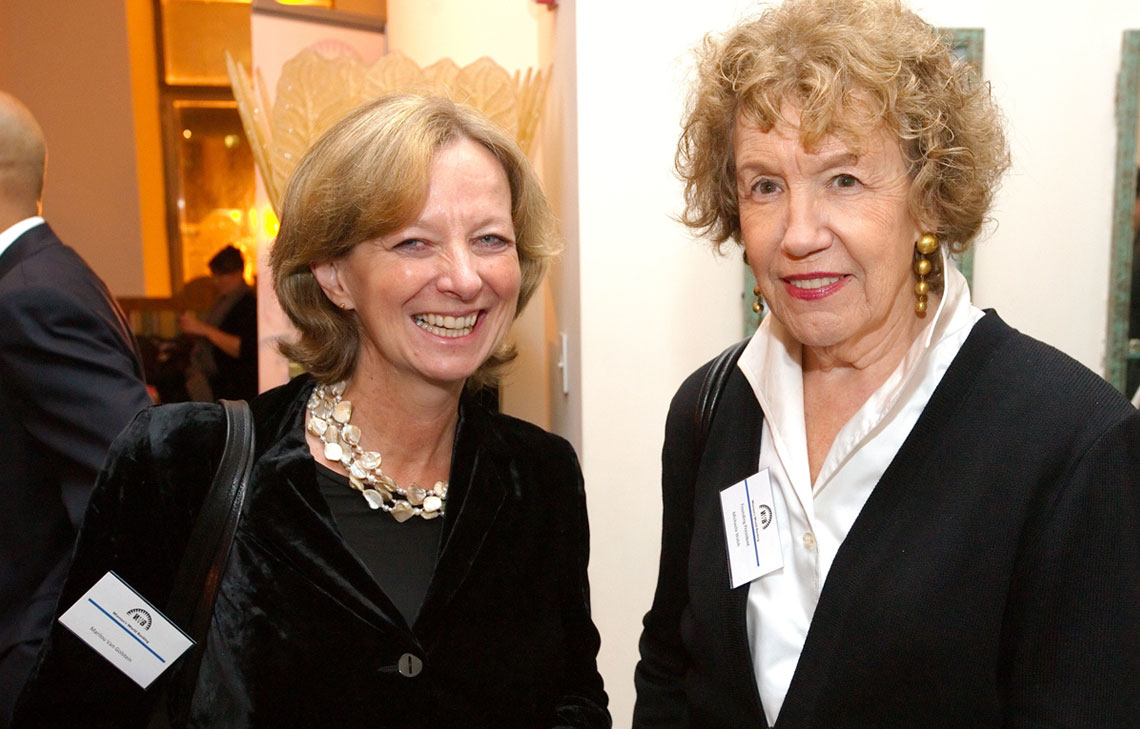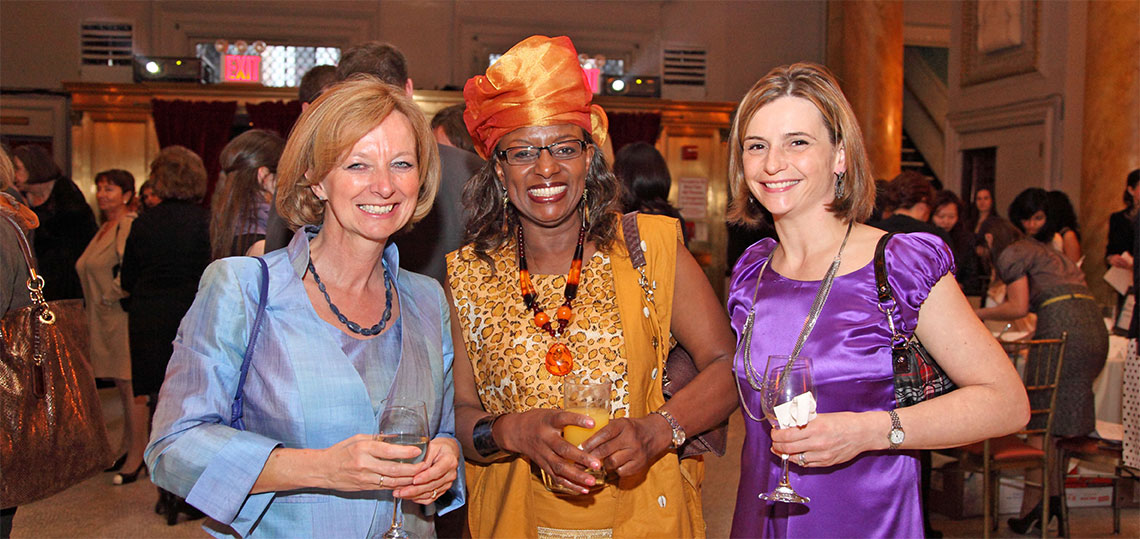Marilou van Golstein Brouwers: Proving the Value of Investing in Women

“In 1994 microfinance was a new thing, it wasn’t seen as something you could invest in,” says Marilou van Golstein Brouwers, managing director of Triodos Investment Management BV, a wholly-owned subsidiary of Triodos Bank and one of the earliest investors in microfinance. In the 20 years since, Triodos Investment Management has built a socially responsible business that invests more than 600 million euros in 102 microfinance institutions and banks in Latin America, Asia and Africa. These institutions provide loans to 11 million low-income people, of whom 73 percent are women and 49 percent live in rural areas.
In 1994, Marilou met microfinance pioneer Muhammad Yunus, founder of Grameen Bank in Bangladesh; this coincided with two Dutch NGOs asking Triodos for help managing their investment portfolios in developing countries. The result was the Stichting Triodos-Doen and Stichting Hivos-Triodos Fonds , both of which made direct debt and equity investments in microfinance institutions across the globe. While senior management of Triodos Bank was already providing financial training to leaders of Women’s World Banking network members globally from the late 80’s and early 90s, (one of the founders of Triodos Bank, Rudolf Mees was also one of the founders of Women’s World Banking) this was the first time a commercial bank made direct investments in microfinance institutions. Marilou’s commitment to improving the lives of women and girls was critical to driving this growth and encouraging others to invest in the financial inclusion sector.
Before coming to Triodos Bank, Marilou was headed for a successful private sector career in the finance industry.
“I learned early on that for me it was very important to have a job that was completely aligned with my values,” she says. “When I was 27 I was working in the finance industry and I really felt a big gap between what I was doing and what I wanted to do. I was a private fund manager, working on the stock exchange, and I was really unhappy in that job.
“When I started at Triodos Bank, it was an opportunity to help people and still combine it with my professional skills. What I noticed is that it is often a struggle if you have strong values and want to work for a purpose. If you can’t combine that with your professional skills, ultimately that makes you unhappy. I see this more with women than with men. My advice to other women is to follow your heart and put your skills to work in a position where you can combine your expertise with what you want to do.”

It was a trip to India to volunteer with Mother Teresa that set Marilou on a path to help women create better lives for themselves. “I was with Triodos Bank and I took four weeks off to work as a volunteer with Mother Teresa in India. I was working in a home for dying people, helping women who had been picked up off the street. I was not a doctor, I couldn’t do much to help them,” Marilou recalls. She asked herself, “What can I do to help prevent women from ending up in a situation like that, where they are completely on their own, no one to care for them and on the streets? For me, that was a trigger to do something to help. I knew I could do more to make sure women are able to build a secure life for themselves so they don’t end up in a situation like this.”
Marilou brought this passion to Women’s World Banking, serving on the board of trustees from 2003 to 2012, a critical period of growth for the organization as it began to work with local institutions around the world to transform the definition of “microfinance” beyond loans to small entrepreneurs. Over nearly a decade, Marilou championed Women’s World Banking’s mission to provide women with financial services that include savings, insurance and financial education. In addition, she served on the board of directors of several microfinance institutions and banks in Africa and Asia
“Since its early days, the microfinance industry has come into its own. The industry has shown that low-income [people] are bankable and can be offered financial services in a sustainable manner,” she says.
“My advice to other women is to follow your heart and put your skills to work in a position where you can combine your expertise with what you want to do.”
But as the industry commercialized, it brought new challenges. “As microfinance becomes integrated into mainstream financial systems, it also faces problems found in the finance industry in general,” Marilou notes. “In some countries strong, even aggressive growth and increased competition has led to overheating and to overindebtedness of clients. Sometimes it seems that the focus on clients has been lost. Personally, this is painful to witness.”
In 2010, Marilou was involved in developing a guide to responsible microfinance investment, the PRI Principles for Investors in Inclusive Finance, which advocates providing a range of services, fair client treatment, transparency and pursuing balanced long-term returns.
“While the principles don’t claim to offer a panacea to the problems emerging in the burgeoning microfinance market,” she says, “they do offer a roadmap that draws us back to the very heart of microfinance: offering financial services responsibly and transparently to people on low incomes, to help enable them to improve their living conditions. This has always been—and will remain—the focal point for our operations as a values-driven investor. We believe that focusing on the interests of clients is the only way to achieve long-term sustainable financial results.”
This client-focused, triple bottom-line goal has been the thread to her career. When Marilou came to Triodos Bank it was still in a start-up phase. She took a significant pay cut from her previous finance position to work for a mission-driven organization. “It was a career risk. In the early 90s, Triodos Bank was a small bank with only 25 people…It was a great opportunity to help build a values-based bank. From a career perspective it was a jump, but I never had any regrets. It was a very clear decision.”
Women have more choices today, she observes, with more social enterprises emerging and becoming viable and even enviable careers. And the financial sector needs more women: “With the risk of generalizing, it is very important to have more women leaders in financial institutions to provide a more holistic view—especially in the financial sector, which is often driven by short-term focus on profit…it is also critical for the women they are serving to ensure the services we offer are of value.”
Over the last two decades, her determination to keep fighting for financial inclusion of women hasn’t wavered. “Women’s World Banking is a needed voice in the world; we have made big steps forward but there is still long way to go,” she says. For example, “the education of girls and young women to be more financially savvy, to know how money works and how to become financially independent—there is still long way to go. I hope that we can contribute to that.”
“We continue to see growing interest from individual as well as institutional investors in inclusive finance as a solid impact investment opportunity. They want to contribute actively to increased access to financial services to enable people and specifically women, to better manage their daily lives, cope with unexpected difficulties, fulfill aspirations and plan for the future.”
